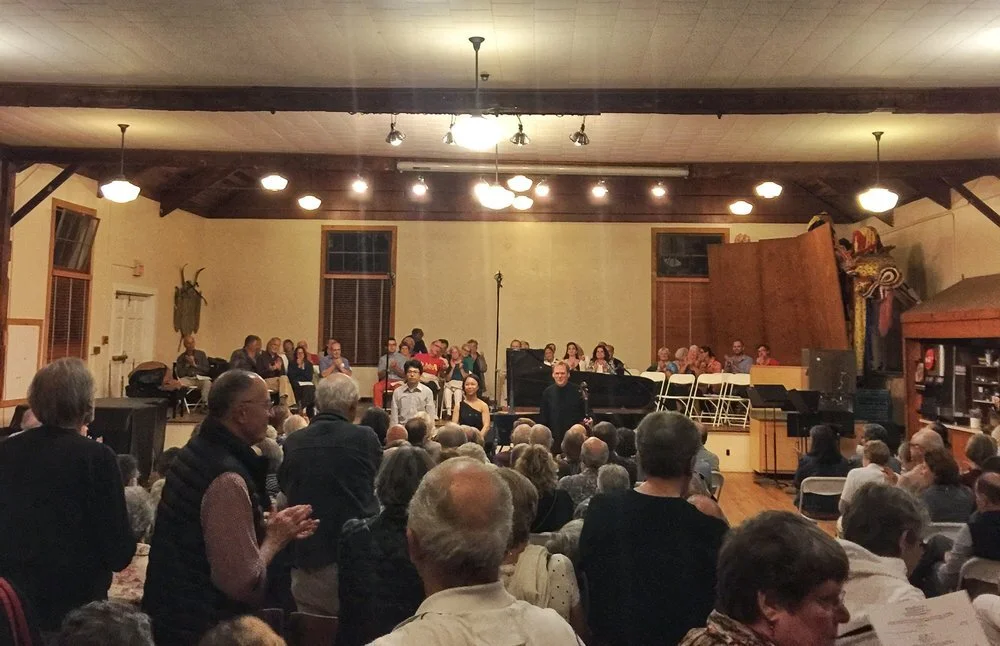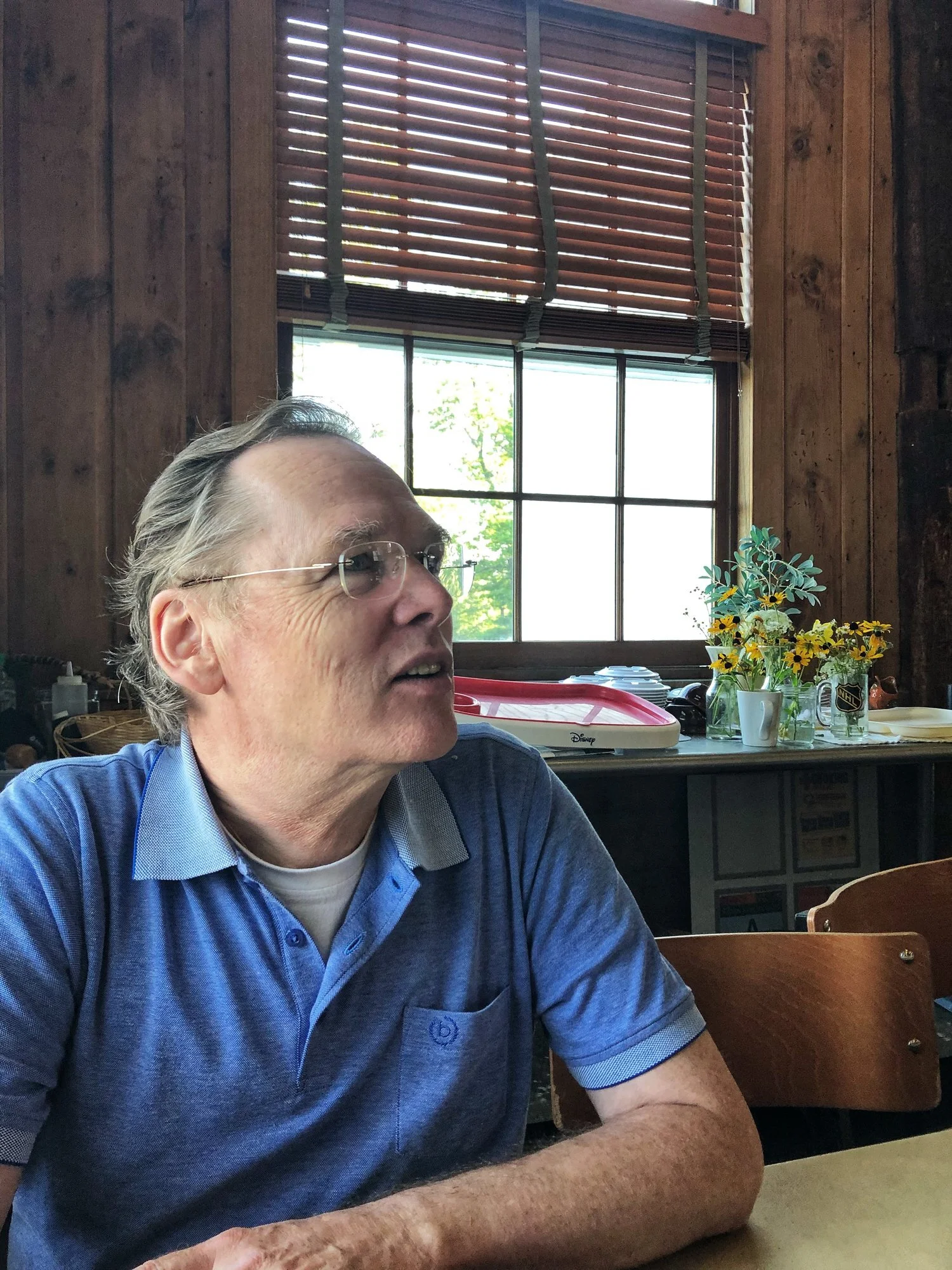Interview with Christoph Richter
Christoph and I first met at Marlboro back in 2015. We had a wonderful group with our dear friend and fantastic pianist Kuok-wai Lio and we worked on Schumann’s Piano Trio No. 2, which we eventually performed at the dining hall—that was in fact Christoph’s Marlboro debut (picture from the concert below)! I can still recall all the details from our rehearsals and our journey together in discovering all the subtleties and nuances of the music. What makes Christoph special is that, in addition to being an incredible musician, he is such a wonderful human being with so much warmth, depth, and kindness—it was such a pleasure working and performing with him. So I was very happy to run into him again this past summer when I visited Marlboro and delighted when he agreed to do this interview. Thank you, Christoph, for your time!
What was the first piece by Britten that you’d ever heard?
It was definitely The Young Person’s Guide to the Orchestra (Op. 34). I remember clearly having an LP of it when I was a child. This piece was on one side and on the other was Prokofiev’s Peter and the Wolf. I must’ve been 10 or so. Listening to it was simply amazing.
What was your first impression of his music?
Well, since that piece was based on a tune by Purcell, I don’t know if it counts as his music. The first piece I’d heard composed entirely by Britten was the First Suite for Cello (Op. 72). Somebody had brought a recording of it when I was around 15. When I heard it, I was speechless. I didn’t know a piece like that existed for solo cello. It’s so pure. The notes are so few, but so deep, so complicated, so human are the situations they describe! I think he’s one of the greatest composers. I have incredible respect for him.
How would you describe his music to someone who hasn’t heard it before?
I would describe it as tonal, because some people may have the impression that the music of the last century is atonal or noisy. Britten’s music isn’t like that. It’s tonal—but it’s not romantic either, nor is it neoclassical. His is an absolutely unique language.
Schumann Piano Trio No.2 at Marlboro Music Festival with pianist Kuok-wai Lio, August 2015
Britten is a composer who was very aware of his surroundings, of what was going on in the world. Did you ever feel that your music-making was influenced by what was going on in the world or by something that happened in your life?
Well, I’m not a composer, but I can say that certain events have influenced and shaped my career in music. When I was 28, I was in Salzburg to play Brahms’ Double Concerto. By that time I already had a job with an orchestra. I was nervous, because I hadn’t played it before. So the violinist said to me, “Why don’t we visit my teacher and play it in front of him? It might all be over in half an hour—we play the piece, he says one or two things, and we’re out.” His teacher was Sandor Végh, and contrary to our expectations we worked for 3 to 4 hours! And the things he said to me—many things my own teacher had said to me but I didn’t get—just went straight through my brain and everything suddenly made sense. That moment changed my life. After that lesson, he invited me to Prussia Cove the following year and I went for the first time. This was 1986. I have gone to Prussia Cove every year since. It’ll be 32 years now.
Until then, chamber music was only a part, not a very significant part, of my life. But from that moment on, I suddenly understood that I can be much happier making chamber music than playing concertos. For me, the concerto is kind of an ego trip. Also, you must be very lucky to find the right conductor and the right orchestra. I had a few of those, but not many. Most of the time, I had the feeling that I had to ’fight’ in the concert and I didn’t like that. But in chamber music, if you’re open enough, you can come to identify with others people’s ideas as much as your own and when that comes out in the music it’s beautiful. And that’s the point of it all.
If you could ask Britten one question, what would that be?
I’m afraid that if I meet him in person, I would be overwhelmed by the respect I have for him and wouldn’t be able to speak. But if I could ask him in my mind... Interestingly, the first question that occurred to me has nothing to do with music: I would ask him what he thinks about our current situation in the world. Because I know that he dealt with this himself, as you said.
Interviewed on July 29, 2018 at Marlboro, VT



